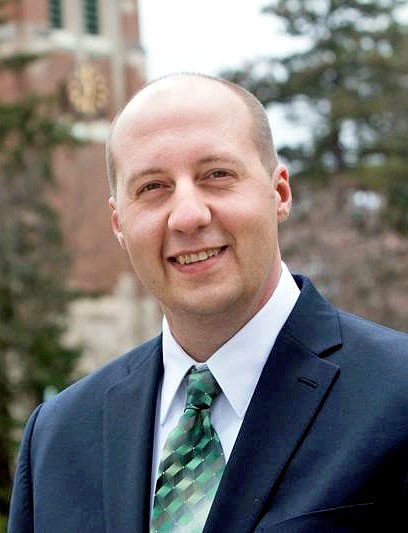Michigan legislature seeks ‘yes means yes’ law

GVL / Courtesy www.hertelforsenate.com Curtis Hertel Jr.
Sep 28, 2015
Michigan Senator Curtis Hertel Jr. and Representative Tom Cochran announced a new piece of legislation Sept. 15 that looks to prevent sexual assault on college campuses. This idea comes at a time when several universities in Michigan, including Grand Valley State University, are under investigation for sexual assault policies.
“Given the recent upsurge in campus sexual assault cases, it’s clear that our current statute simply doesn’t put enough emphasis on what consent means,” Cochran said in a press release. “Teaching our kids about affirmative consent is a great first step in the fight against the epidemic of sexual assault.”
A similar policy has been enacted in states such as California where a “yes means yes” approach requires students to receive clear, affirmative consent when engaging in sexual acts. The ruling also includes the guidelines that an individual cannot give consent when drugged, under the influence of alcohol or asleep.
Several states, including Michigan, are now looking at implementing similar initiatives.
“It is important to remember that when legislation or policy states that affirmative consent is required, this does not mean that a student can only express this in a verbal fashion,” said Ashley Schulte, GVSU coordinator and victim advocate.
According the GVSU interim sexual misconduct policy, consent is described as, “Clear, unambiguous, and voluntary agreement between the participants to engage in specific sexual acts. Consent cannot be inferred from the absence of a ‘no.’ A clear ‘yes,’ verbal or otherwise, is necessary. Silence, passivity, or lack of active resistance does not imply consent.”
This also looks to improve upon the “no means no” approach to avoid unwanted physical content, meaning that just because someone did not outright say “no,” that does not mean they are not opposed. Instead, the policy wants to ensure that individuals to receive a form of affirmative consent from their partner.
The new legislation also aims to inform high school students about affirmative consent looking to clarify that silence and lack of resistance do not constitute consent, that consent can be rescinded at any point during the sexual encounter and that the existence of a dating relationship between two people does not imply consent.
“We want students to know as much as possible about the definitions of sexual assault before they come to college, that would be ideal,” Schulte said. “The more they know, the better.”
Introducing this idea of consensual relationships is imperative to explain to students as they go through the educational system, Schulte said. This includes reinforcing the idea with children that respect and consideration is needed in all relationships even if it is applied in the form of proper and improper hugging.
The university strongly encourages the prompt reporting of sexual misconduct to the Title IX coordinator. A sexual misconduct report may be made by the person who believes they have experienced sexual misconduct (the “complainant”) or a person who has information that sexual misconduct may have been committed by a university student, faculty, staff member or other person in the university community (the “reporter”).
“College-aged women are four times more likely than any other age group to face sexual assault,” Hertel said in a press release. “We are facing an epidemic on college campuses across the U.S. and here in Michigan. We cannot continue to turn our backs on our kids. It’s on us to make sure they are educated and prepared to go off to college.”
For more information, visit the GVSU website on sexual assault prevention www.gvsu.edu/itsonus.





















